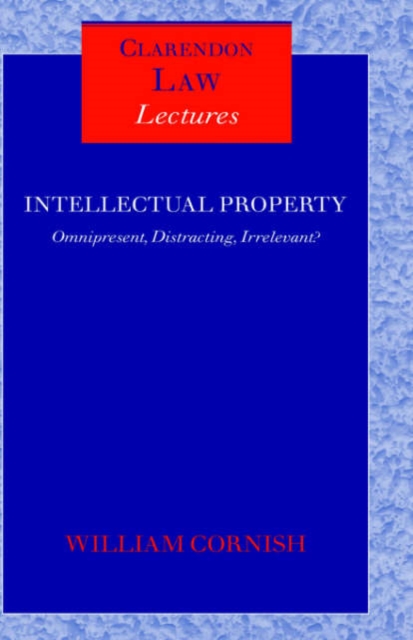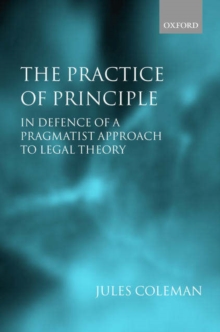
Intellectual Property : Omnipresent, Distracting, Irrelevant? Hardback
by William (, Herchel Smith Professor of Intellectual Property Law, University of Cambridge) Cornish
Part of the Clarendon Law Lectures series
Hardback
Description
Intellectual property rights (IPRs) are increasingly significant elements of economic policy: they are vital to developed countries in an age of global trade.
Today's astounding new technologies, stemming from the digital and biotechological revolutions are creating new problems.
William Cornish focusses upon the major dilemmas that currently enmesh the subject: the omnipresent spread of IPRs across some recent technologies, the distraction caused by rights that achieve little of their intended purpose, and the seeming irrelevance of IPRs in the face of new technologies such as the internet.
What IPRs are good for, and what they should achieve depends upon the law which defines them.
There is great international, as well as national pressure for new laws, and in Europe, the EU is now the dominant force in shaping IP policy.
Against this background, William Cornish surveys current arguments over legal policy in this field.
How can the the issues raised by advances in human genetics be reconciled with the potential for diagnostic and therapeutic advances, and the patenting of molecules, genes, and even organisms by biotechnology and pharmaceutical companies?
How can this new field be fairly protected through the existing requirements of patent law; and who should be responsible for effecting this result?Copyright is the traditional buttress of publishing, computer programming, and record and film production.
It now faces a life-sapping threat from free and ready access to material via the Internet and other digital resources.
How can a mixture of legal rights and technological barriers to access give reasonable protection to investment in new intellectual products without becoming an inordinate instrument of control?Trade marks are the crux of branding: a cornerstone of marketing that often eclipses even the very things being sold.
How can we reconcile the tension between those intent on legal protection for every element of investment in branding, and those concerned to balance freedom to compete against the drive for 'fair trading'?
Information
-
Out of stock
- Format:Hardback
- Pages:128 pages
- Publisher:Oxford University Press
- Publication Date:19/02/2004
- Category:
- ISBN:9780199263073
Information
-
Out of stock
- Format:Hardback
- Pages:128 pages
- Publisher:Oxford University Press
- Publication Date:19/02/2004
- Category:
- ISBN:9780199263073










